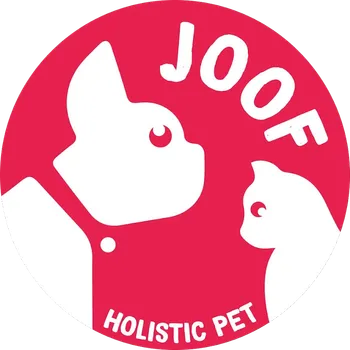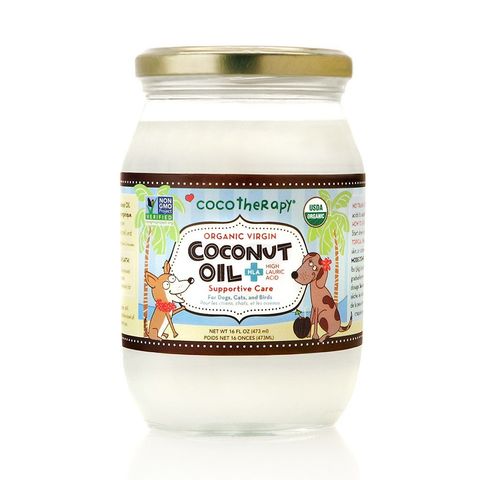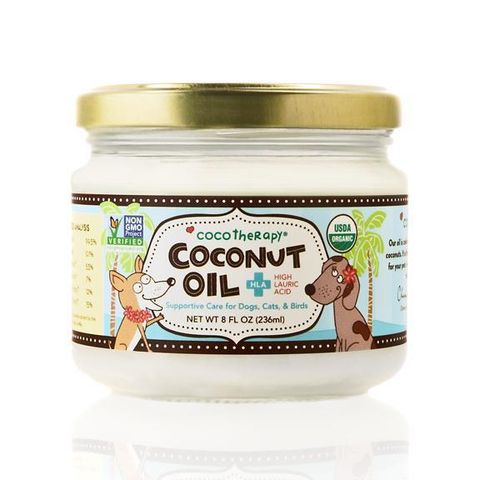
Recommended Article #23Nov24
Hi, Pet Parents Resources is a platform, where we share with you, what we research as pet parents ourselves. Here, we curate and give, what we hope would be, interesting to important informative articles, videos, and even podcasts from our brand creators, experts, researchers, and more all over the world, to aid you in making better choices for your pets.
This recommended article "How to Naturally Detoxify Your Pet" is curated and sourced from CocoTherapy. If you loved this article, please do feel free to share it around.
How to Naturally Detoxify Your Pet
For many of us that means committing to healthy lifestyle choices such as eating better, drinking more water, and getting up off the sofa and into the gym!
But it's not just humans who can benefit from detoxifying. Toxins can build up in your pet's body, increasing their 'toxic load'. Over time, this toxic load can become too heavy for your pet's body to manage – putting them at risk of developing chronic health conditions.
In today's post we'll take a look at how toxins enter your pet's body and the health problems they can cause. We'll also explore ways to minimize your pet's exposure to toxins and help reduce their toxic load.
How Do Toxins Enter Your Pet's Body?
Pets are exposed to toxins from a number of sources. Chemicals in the environment – both inside and outside – can contribute to toxic load. Common chemical toxins include pesticides, weed killers, and fertilizers, as well as household cleaning products and solvents. Toxins are also present in polluted air, medicines and vaccines, processed pet foods, and unfiltered water.
The Effects of Toxic Load on Your Pet's Health
When toxins build up in the body they can overwhelm your pet's immune system and leave them susceptible to illness and infection. Many chronic health conditions in pets can be caused by toxic load. These include skin irritation, digestive disorders, liver and kidney problems, and even cancers.
Your pet's immune system works hard to purge their body of toxins, but when it becomes overwhelmed, symptoms such as stomach problems, skin irritation, and inflammation can occur. Over the long term, your pet's toxic load can put enormous strain on their internal organs and lead to more serious conditions.
Detoxifying Your Pet
Thankfully, there are measures you can take to minimize your pet's exposure to toxins and reduce their toxic load. Here are our top recommendations!
Feed a Balanced, Species-Appropriate Diet
In previous blog posts we've explained how important it is to feed your pet a balanced, species-appropriate diet. Avoid feeding your pet low-quality commercial pet food – most commercial pet foods are processed and packed full of cheap ingredients and fillers. To make the food more appealing to pets, manufacturers add artificial colors, flavors and flavor enhancers. And to extend the food's shelf life, chemical preservatives are added.
These chemical additives build up in your pet's body over time, increasing their toxic load and potentially causing a huge range of health problems over their lifetime. Feeding your pet a balanced, species-appropriate diet will promote healthy bodily functions while preventing and reducing toxic load.
Provide Filtered Drinking Water
Unfiltered drinking water is a source of toxins that's easy to overlook. Water from the faucet contains trace amounts of toxic minerals and heavy metals, chemicals such as fluoride and chlorine, and other harmful compounds.
These toxins are not easily eliminated from your pet's body and can contribute to their toxic load over the long term. Investing in a water filtration system is the most cost-effective way to ensure that your pet's drinking water is safe and healthy to drink.
Minimize Exposure to Environmental Chemicals and Pollutants
There are lots of potential sources of harmful toxins in your pet's environment that can contribute to their toxic load. Although toxins can be difficult to avoid completely, there are several ways you can minimize your pet's exposure.
Inside the home, substitute strong chemical cleaning products for natural alternatives. It's also important to forbid smoking in the house, avoid chemical air fresheners, and keep pets away from solvents and chemicals such as pest repellents and perfumes.
In the outdoor environment, avoid areas that are likely to have been treated with chemicals such as fertilizers and pesticides. It's a good idea to bathe your pet regularly to remove any allergens they may have come into contact with.
Avoid Overmedicating and Unnecessary Vaccinations
Toxins are present in conventional medicines and vaccines, and can cause toxic load if overused. Look for natural alternatives to conventional medicines such as pest preventatives. They can be just as effective as chemical treatments and are free from harmful toxins.
Over-vaccinating your pet can overwhelm their immune system, increase their toxic load, and adversely affect their health. Many veterinarians are now speaking out against annual vaccine boosters, deeming them unnecessary and dangerous. Instead of routinely vaccinating your pet, ask your vet to do a titer test to determine if your pet is still protected. Common drugs such as antibiotics and steroids are also often overused. Your holistic veterinarian can help you explore safer alternatives wherever possible.
Use Natural Detoxifiers
Natural detoxifying agents can support your pet's organs and help them process and eliminate toxins. Milk thistle is one herb that can be used to support liver function and detoxification. Other detoxifying herbs include red clover and dandelion. Natural detoxifying agents like these support your pet's organs and lymphatic system, helping them to eliminate toxins.
Therapeutic coconut oil is a medium-chain fatty acid that helps reduce your pet's toxic load and naturally supports the body. Its detoxifying effects are especially beneficial for promoting digestive and immune health.
Speak to your holistic veterinarian for more information about using natural detoxifying agents to support your pet's health.
The good news is, you can purchase CocoTherapy Organic Theraupetic Grade Virgin Coconut Oil from our retailers today!
You may find more interesting reads from JOOF Holistic Pet today! Look out for loads of information on our product pages, social media, especially our Pet Parent Resources page.
JOOF Holistic Pet, a Singapore online pet store that focuses on the holistic well-being of your beloved furkid. Our recommended products aim to support and improve health, emotional and physical well-being, and help your pet have a better quality of life without compromise. Look out for Essential, Trendy and Premium quality pet products that are specially curated, with the pet parents concerns' as a priority.
This blog first appeared on the CocoTherapy website, where this article "How to Naturally Detoxify Your Pet" was curated and sourced from.
Original source: How to Naturally Detoxify Your Pet
Thank you for reading! We hope to bring you more informative and exciting articles from other resources and our varying retail brands. Through them, we hope more and more pet parents could become their pet's wellness heroes, proactively taking control of their pets’ foundational health from within, with JOOF Holistic Pet - www.joofholisticpet.sg 😊
Disclaimer:
JOOF Holistic Pet has curated and reproduced this article in good faith, which may contain an element of consumer opinion, but cannot be held responsible for any information inaccuracies in it or any use assumed from this information by the reader. JOOF Holistic Pet welcomes positive recommendations for holistic healthcare products, but does not necessarily endorse the author’s opinion. We acknowledge each animal is an individual and may react differently to the highlighted product/s, and that there may also be other similar effective products available.
General recommendations made by JOOF Holistic Pet are solely for informational and educational purposes, and are not a substitute for the appropriate veterinary care. It is important to always consult professional help if you have concerns about your furkid’s health.


